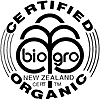5 June 2016 is World Environment Day
According to FAO “without accounting for greenhouse gas emissions from land use change, the carbon footprint of food produced and not eaten is estimated at 3.3 Gigatonnes of CO2 equivalent: as such, food wastage ranks as the third top emitter, after the USA and China.” In terms of land use, the production of uneaten food takes up about 1.4 billion hectares, which is almost 30% of the world’s agricultural land. Biodiversity and ecosystems are also hurt by the industrial production of food that never reaches the table.
Food wastage, a root cause of food insecurity, is one of the major deficits of our current food system. A system, that produces enough to feed the world but sees almost 800 billion people go to bed hungry every night.
Food wastage refers to both food loss and food waste. Food loss is a decrease in the nutritional value of food e.g. due to inadequate infrastructure, storage and distribution facilities. Food waste refers to food that is thrown away e.g. it has reached its expiry date or does not meet certain quality standards.
Although a global problem, the reasons behind food wastage differ in poorer and more affluent countries. Food loss is more prevalent in poorer countries whereas we see more food waste in affluent countries.? The impact this is having on the environment can be felt around the world; in particular, by smallholder farmers who grow the majority of the food we eat.
To reduce the environmental impact of food wastage and facilitate a shift toward a truly sustainable food and farming system we need to:
- Empower farmers to grow organically and invest in post harvest knowledge, storage, distribution, and a better infrastructure to help prevent food loss.
- Devise policies incentivizing waste recycling in a truly sustainable, regenerative agricultural system, where “waste” does not exist. This means that everything is used, and when that use is exhausted, the material components are transformed or absorbed into another part of the system in a beneficial way.
- Revise quality standards used to classify fruit and vegetables to focus on their nutritional value, not appearance. This is of particular importance given that industrial farming, processing and trading methods are causing a decline of minerals in our food.
- Raise awareness of the impact food wastage has on the environment and the difference choosing organic can make to people and the planet.
You can learn more about moving toward truly sustainable farming, production and consumption inThe Best Practice Guideline for Agriculture and Value ChainsandOrganic 3.0 - The next Phase of Organic Development.
















